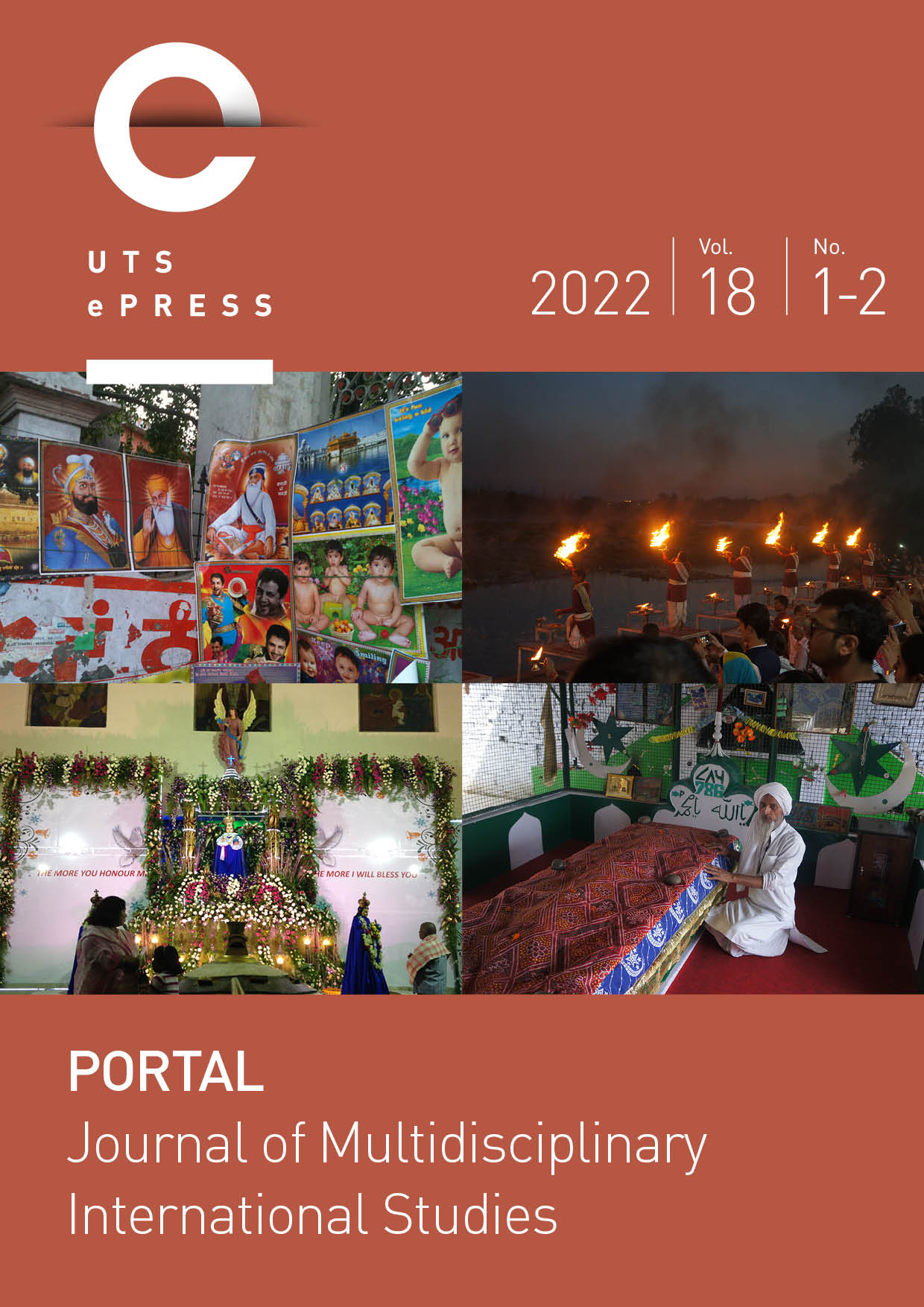The Contemporary Deconstruction of Religion: How Current Scholarship in Religious Studies is Changing Methods and Theories
Main Article Content
Abstract
My paper has 3 goals: 1) to introduce and outline the field of ‘critical religion’; 2) to set out my contribution to this field by explaining how and why religions should be considered ‘vestigial states’; and 3) to suggest ways in which the approach to the topic of religious synthesis in India might be influenced by critical religion in general and vestigial state theory in particular. I argue that ‘religion’ as an ahistorical, eternal, indefinable category –what Roland Barthes called ‘depoliticized’ speech –warrants energetic critique. To this end, I survey a variety of theorists whose work deconstructs ‘religion’ and attendant binaries such as religious/secular and religion/politics. I maintain that religions function as vestigial states within contemporary states. By ‘vestigial states’ I mean practices and institutions originating in particular histories as survivals of former sovereignties. These remnants are tolerated as attenuated jurisdictions within fully functioning states. These vestigial states (religions) are always somewhat problematic because they compete with contemporary states - especially if they challenge the present state’s right to control violence. However, religions also work to ground the governments that authorize them by recalling earlier, mystified forms of sovereignty. Moreover, religions are useful because they can be depicted as less progressive versions of power. Thus do ‘religions’, understood as vestigial states, both disturb and maintain current regimes. I conclude with some speculations on how insights derived from critical religion might impact work on conceptualizing ‘religious synthesis’ in India specifically and ‘interreligious’ interactions more generally in a global context.
Article Details
Section
For submissions from 31st March 2014 onwards, authors who submit articles to this journal for publication agree to the following terms:
a) Retaining Copyright and Granting Rights:
Authors retain copyright and grant the journal the right of first publication. The work is simultaneously licensed under a Creative Commons Attribution License, allowing others to share and adapt the work. Acknowledgment of the work's authorship and initial publication in this journal is required.
b) Non-Exclusive Distribution:
Authors may enter into separate, additional contractual arrangements for the non-exclusive distribution of the journal's published version of the work (e.g., posting to an institutional repository or publishing in a book). Acknowledgment of its initial publication in this journal is required.
c) Online Posting and Citation Advantage:
Authors are encouraged to post their work online (e.g., in institutional repositories or on their website) prior to and during the submission process. This may lead to productive exchanges and earlier and greater citation of the published work (See The Open Access Citation Advantage Service). If authors include the work in an institutional repository or on their website, they must acknowledge the UTS ePRESS publication with relevant details.
d) Creative Commons Attribution (CC-BY) License Awareness:
Authors should note that the CC-BY License permits readers to share (copy and redistribute) and adapt (remix, transform, build upon) the work for any purpose, including commercial use. Proper credit, a link to the license, and indication of any changes made must be provided. The manner of doing so must not suggest endorsement by you or your publisher.
For Volume 10 No 2 (2013) and earlier, the following copyright applied:
Authors submitting a paper to UTSePress publications agree to assign a limited license to UTSePress if and when the manuscript is accepted for publication. This license allows UTSePress to publish the manuscript in a specific issue.
Articles published by UTSePress are protected by copyright, with rights retained by the authors, who assert their moral rights. Authors control translation and reproduction rights to their works published by UTSePress. All rights are reserved worldwide by UTSePress, and downloads of specific portions are permitted for personal use only, not commercial use or resale.
For reprint or usage permissions, please direct inquiries to UTSePress via the journal's main editor, Dr. Nicholas Manganas at [portal.scholarly.journal@gmail.com]. Reprint permission requires acknowledgment of both UTSePress and PORTAL in the format advised by the journal editor.
